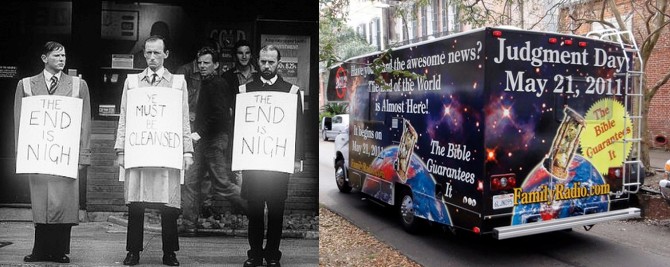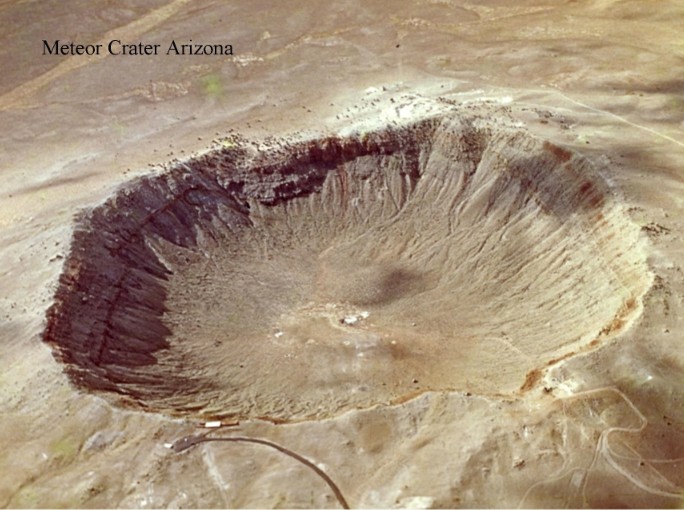Physicist: Firstly, happy new year!
So, there’s been a lot of hoopla around 2012 doomsday stuff for a while. Maybe not as much fuss as there was over the techno-apocalypse of Y2K, but still. Although there are a variety of cited prophecies, the Mayan calender is arguably the most famous.
I’m not knocking them, but if the Mayans could see the future and understood the nature of the universe so very well, then they should have been able to wipe out the conquistadors with their rail guns and bio-weapons, then nuked Spain from their orbital weapons platform, code-named “Ah Chuy Kak“. That seems like a Mayan response anyway. Those guys were kinda jerks.
Also, and less interestingly, there’s no evidence that the Mayans even made any 2012 predictions in the first place.
So, dismissing out of hand any claims of prognostication (given that those claims don’t tend to pan out), what is the probability that the world will end in 2012?
Back in the day, a statistician (42% of whom are marginally attractive) named Pierre-Simon Laplace (100% French) considered the question “what is the probability that the sun will rise tomorrow?”.
Like most French, Laplace wasn’t entirely ignorant. He knew all about the solar system and whatnot. What he was really getting at was, if you don’t know (or pretend not to know) the underlying probabilities of some phenomena, how do you figure out what those probabilities are?
He figured out that if you see something, that can happen in one of two ways, happen the same way N times in a row, then the probability that it will continue that pattern next time is . There’s a generalization to this, but in the case of sunrises, it’s not needed. Laplace figured, if the Earth is 6 thousand years old (at the time Laplace was living, “young Earth creationist” was essentially the same as “Christian”), then the probability that the sun would rise the next day was around 99.99995%.
One less worry.
Laplace’s “rule of succession“, as the equation is called, assumes a complete lack of knowledge about what the actual probabilities are, but it does require you to know in advance of seeing (or not seeing) an event that either result is possible.
But with the end of the world, we know it’s certainly possible. We know that the Earth has endured environmental catastrophes that any human survivor (if there were survivors) would call “the end of the world”. Looking into the solar system we frequently see impact craters of various sizes on objects, ranging from tiny to very-nearly-large-enough-to-blow that-object apart. (I mean, have you seen Mimas?) Oddly enough, we never see any that are large-enough-to-blow-that-object-apart.
So, could the world end any day now? Why not. There’s plenty of stuff that could take us out.
Using only the rule of succession (which basically boils down to “well, it hasn’t happened yet”) we can say that the chance of the entire Earth being destroyed this year is about 1 in 5,000,000,000.
If you define the end of the world as the end of our species, then again using the rule of succession, the probability that we’ll go extinct this year (given no information other than “we’ve made it this far”) is about 1 in 200,000.
It’s kinda comforting to think that the ancient Romans, Mayans, Norse, Indians, freaking everybody, had people running around predicting the end of the world. Throughout all of known human history there have been people deeply concerned with the impending end of everything and, with any luck, they’ll have a chance to make the rest of us nervous for tens or hundreds of thousands of years to come.









Ah Chuy Kak is the mayan god of war -__-
People are always predicting the world will end and it never happens. Brian Cox definitely does not think it will!!!!
How can Laplace possibly make a prediction of the future, simply based on past observations? In other words: How can one determine probabilities of outcomes without having a probability measure?
The only thing we have access to is the past.
What Laplace did, mathematically speaking, was assume a maximum lack of knowledge about the probability distributions, and then carefully built his knowledge from experience. Mathematically speaking.
There is always this thing with a tree falling in the middle of forest. Isn’t it obvious if you don’t believe in god, when you die, you stop experiencing the world. Therefore not only you cease to exist for the universe (in this case it’s even longer than the other), but universe does the same for you – disappears. This way I have proven that the end of the world happens every day, for many people, and one day it will happen for you. It doesn’t work for everybody, what with all this religions and whatnot, but this is our society – nothing works every time (even stuff like gravity if you have open minded enough scientist ;)).
No one knows when the world ends. but the creater know it.
If there is anyone who saying “world will end in 2012” you can ask them to have a bond such that all his properties become yours after 2012…
I bet it would be profitable to go into the business of managing post apocalypse assets…does that seem unethical to anyone?? lol
Only God know the end and the day be
couse the world was created be him .
I pelieved that the god only know the end of the worid
Pingback: Q: Is darkness a wave the way light is a wave? What is the speed of dark? | Ask a Mathematician / Ask a Physicist
Thought you’d like an update from the future.
Yes!
🙂
Still here in 2016
2017 Still good 🙂
2019 isn’t faring too bad either.
Obviously not
Then Ur telling me there is no God Big Bang is a theoretical by modern time looking at the Old Testament will give u the correct answer and the new Words of God where far lost, 4 instance healing oil has been discovered so what all believe now was lost in the day of Christ so U see some one was responsible 4 this and in saying all this I know the truth no preparation in this world will help life as we know it U should believe it’s closer then U 🤔 ask 👹 the anti-Christ
Nothing bad in 2021, except corona, talibans etc….